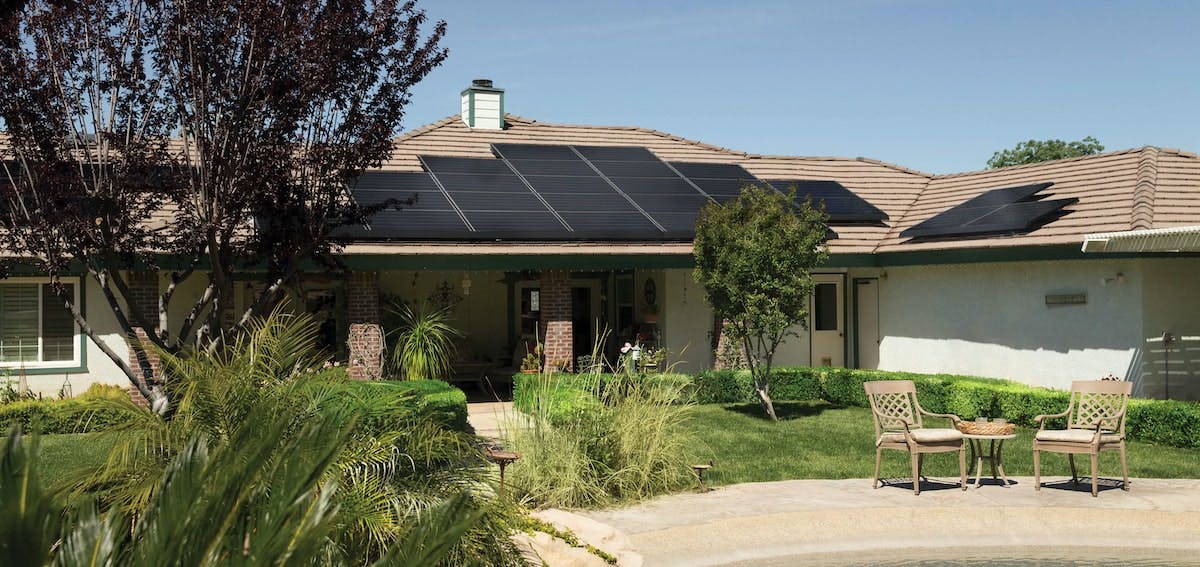Property Management
How Homeowners Can Benefit From New US Climate Tax Credits and Rebates
Last Updated Sep 6, 2022


The Inflation Reduction Act is now law and includes a big push to bring down energy costs for families while reducing climate pollution. In 2023, the Inflation Reduction Act will allocate $369 billion through tax credits and rebates to make it cheaper for homeowners to fit their residential and rental homes with energy efficient appliances and clean energy solutions (such as heat pumps and solar panels).
Homeowners may qualify for up to $10,000 or more in tax breaks and rebates, depending on your household income and the type of energy-efficient upgrades being made to primary residences and second homes. While official details are being ironed out, this article is an overview of what we know so far and how to start planning your home efficiency updates.
What are the new 30% tax credits and rebate schemes for home efficiency upgrades?
A tax credit is an attractive tax break for homeowners, allowing you to offset the cost of upgrades against your yearly tax bill. A tax credit is more beneficial than a deduction, because you receive the full amount (dollar-for-dollar) of the credit off your tax bill rather than using it to reduce the amount of your taxable income.
This means that if you don’t have a tax liability, you won’t be able to take advantage of the credit on your refund. However, if you have insufficient liability to benefit, you can carry forward any unused credits to offset future tax bills. An accountant will be able to step you through eligibility and offer advice based on your individual circumstances.
For the past few years there have already been tax credits in place for energy-efficient updates and appliances, however they have typically been reserved for primary residential homes and have been fairly minimal, capped at around $500.
The Inflation Reduction Act will update and replace the older schemes, with new options set to roll out in 2023:
1. Energy Efficient Home Improvement Credit
The former ‘Nonbusiness Energy Property Credit’ is being replaced with the renamed Energy Efficient Home Improvement Credit as of January 1, 2023 (until 2032).
Every year, homeowners can apply for a tax credit for 30% of the cost of eligible home efficiency improvements made through the year. Examples of these upgrades include:
- New exterior doors
- Energy efficient windows and skylights
- Installation of heat pumps/heat pump hot water heaters
Annual limits apply, with a $1,200 total cap per year and limits on some specific items. Heat pumps and water heaters are exempt from the limit, with a rebate of $2,000.
2. Residential Clean Energy Credit
The former Residential Energy Efficient Property Credit is being replaced with the renamed Residential Clean Energy Credit as of January 1, 2023 (until 2034).
These tax credits will help offset the costs of installing clean household energy solutions such as:
- Solar power including panels and some battery storage options
- Wind power such as a small wind turbine
- Geothermal HVAC for heating and cooling
Most eligible costs incurred from the beginning of 2022 would qualify for a 30% tax credit, with the exception of the new tax break for batteries which will begin in 2023.
3. High-Efficiency Electric Home Rebate Program
In addition to the tax credit programs, the High-Efficiency Electric Home Rebate Program will provide an upfront point-of-sale rebate of up to $8,000 on the installation of eligible heat pumps that can heat and cool homes efficiently. There is also a rebate of up to $1,750 for heat pump water heaters and up to $840 to offset heat-pump clothes dryers.
If a home needs to improve the electrical wiring or panels to support more modern and efficient appliances, there are also rebates available ranging between $2,500 - $4,000 to offset the cost.
Better insulation and sealing is also one of the most cost-efficient (and fastest) ways to improve the energy efficiency in a home, so there is a rebate of up to $1,600 towards these costs.
Can I apply energy efficiency tax credits towards updates on a rental home?
Investing in energy efficient improvements to your rental home can be a smart investment, attracting responsible and conscious residents while reducing your carbon footprint.
Eligibility for the newer tax credits depends largely on your personal income and circumstances, however many of the credits and rebates are available for both a personal residence and second home. The schemes are geared toward low-medium income earners, so it’s worth getting professional advice on your situation before proceeding with any planned upgrades to your rental home.
How can homeowners apply for the energy efficiency tax credits and rebates?
According to the bill, the rebates will start after December 31, 2022, so we expect further details on how to claim for credits and rebates to be revealed over the coming months. To be eligible for the point of sale rebates, household income cannot exceed 150% of the area median income as calculated by the Department of Housing and Urban Development (which you can find here). When regulations and protocols are put in place, they may differ from state to state.
In the meantime, the best approach would be for homeowners to speak to a professional to plan out energy efficient upgrades and discuss eligible solutions to offset the costs for work commencing from 2023 onward. The bill will have annual limits and credits available for the next decade, so you may wish to prioritize costs and plan out yearly updates to take full advantage of the tax credits and rebate schemes.
Building a greener future with Belong
Looking for more inspiration? Check out 7 Cost-Effective Ways To Make Your Rental Home Sustainable in 2023.
About The Author
Sparsh Mehta
Head of Marketing
I grow new markets and bring our industry-changing experience to homeowners and residents around the country. Lover of the Outdoors, Scuba Diving, Skiing, Hiking, Live Music, and all things Technology.




